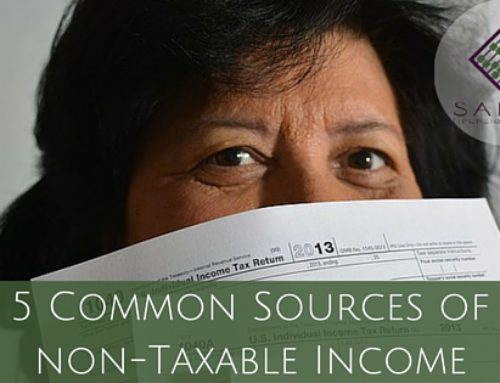If you’ve recently started your own business, or are in the process of starting one, and you know that having a team will be vital to your success, you need to make sure that any HR guidelines are clear and that you are not violating the tax code in any way.
The most frequently asked question I get about hiring help is whether to treat the individual as an employee or an independent contractor for tax purposes. I’ve had clients who assume that they can automatically treat new people as independent contractors so that they don’t have to pay employment taxes or because they were only around for a one-off project.
Neither the length of time employed or your own preferences determine whether or not you have an independent contractor or an employee.
The IRS has a clear list of criteria when it comes to determining whether or not you have an employee or a contractor.
The IRS’ list of criteria is known as their 20-factor test. These questions are used to determine how the person may be treated for tax purposes. Among these criteria for an employee:
- The person is trained by you, the company. You provide and teach the person your preferred software or processes so that they can complete the job according to your set standards.
- You, the company provides equipment, tools, for the individual to do their job. They use your computer, your equipment or software, your wrenches, and leaf-blowers, etc.
- You, the company defines how the work is done.
- You require the person to work full-time or you have set hours if they are part-time.
- You reimburse the person for any travel or business expenses they incur instead of just paying an invoice they give you.
- The employee is required to work at your office to complete their work, which shows that you have control of the work.
- The employee gets reimbursed by the company for travel or business expenses, which means they cannot deduct those expenses as business expenses on their own tax return.
- Are the employee’s services available to the public or only to the company? If only to the company, he/she can be classified as an employee.
Now, not all of these 20 factors have to be met in order to make a determination. There are some grey areas that have to be treated on a case by case basis. Some freelancing work contains aspects of being both an employee and an independent contractor. It’s best to take this on a case by case basis and contact your tax professional or IRS if there is any confusion.
For example, you hire a virtual assistant to help you with social media, graphics, and promotion for your website’s blog posts. You sign the VA’s contract and agree to pay the VA on an hourly basis. The VA does not work for you exclusively and has other clients. In this scenario, the VA operates as an independent contractor and is responsible for paying his/her own federal taxes on a quarterly basis.
Another example would be working in the “gig economy”. As an Uber or Lyft driver, this type of work has aspects of both being a contractor AND an employee because of the rules and regulations placed on them by the corporate entity and the state they operate in. Because of this, Uber and other rideshare companies have been involved in lawsuits over whether their drivers are employees or independent contractors. As of the date of this publication, drivers are still classified as independent contractors, but state laws could change at any time.
These are just a few of the criteria. Again, it needs to be taken on a case by case basis but these are the general criteria. In the case of an audit, if the IRS decides that your workers were actually employees, you will be responsible for back employment taxes and penalties for not depositing federal tax money. So you need to be very sure of how you want to hire your team when you start your business.
If you’re unsure about your contractors and if they qualify as employees, schedule a quick call with me and let’s discuss.








